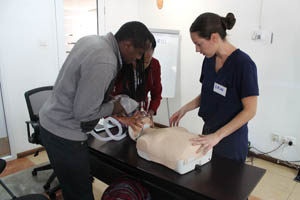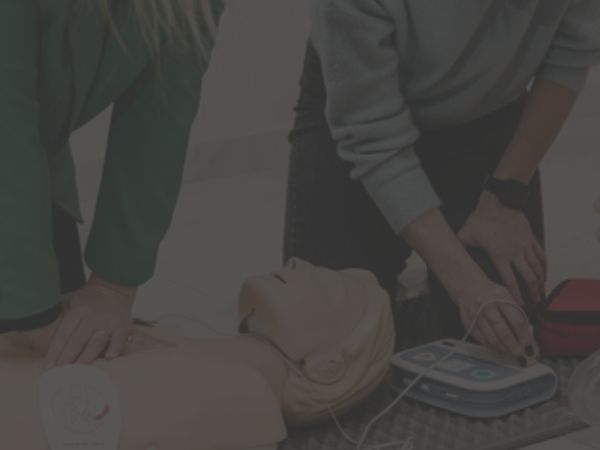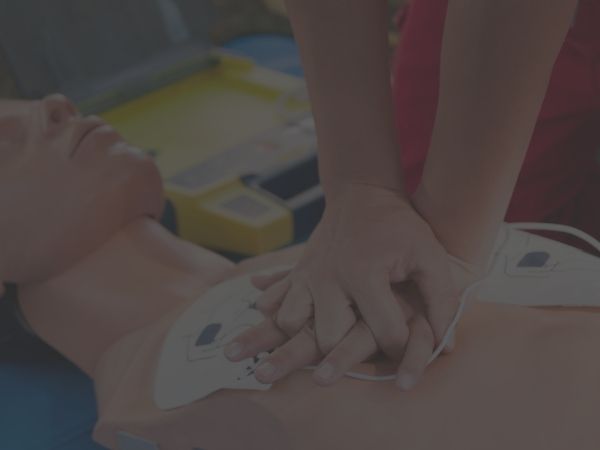Your cart is currently empty!
How Chest Compressions Save Lives
AS A HEALTH CARE PROFESSIONAL, you heard and read about updates to the guidelines and standards that the International Liaison Committee on Resuscitation (ILCOR) makes to cardiopulmonary resuscitation (CPR) courses every 5 years. Where are these coming from and why do they matter so much? How can chest compressions save lives? The ILCOR and the American Stroke Association (ASA) publish these medical statements based on scientific studies published in research journals that have completed an arduous evaluation and approval phase. The ILCOR and ASA reviewers are all-volunteer scientists and experienced medical professionals that are passionate about improving cardiology and saving more lives.
 Recently, the ILCOR has introduced a simplified approach to CPR in an effort to reach out to every level of practice. Hands-Only CPR is comprised of a call to 9-1-1 and a series of compressions that are performed to the familiar beat of Staying Alive”. While this is somewhat humorous, it is actually a concept that has saved countless lives and can essentially be practiced by anyone, including you! A 2010 WebMD article stated that after much research, there are several advantages to only performing chest compressions, compared to the standard (a compression to breath ratio of 30:2 for one-rescuer). While giving breaths has a positive impact on patients in clinical settings, CPR delivered outside the hospital is often performed by a bystander who may be reluctant to perform mouth-to-mouth rescue breathing. Eliminating the breaths makes the practice easier to learn and remember, and also increased survival due to fewer interruptions for breaths.
Recently, the ILCOR has introduced a simplified approach to CPR in an effort to reach out to every level of practice. Hands-Only CPR is comprised of a call to 9-1-1 and a series of compressions that are performed to the familiar beat of Staying Alive”. While this is somewhat humorous, it is actually a concept that has saved countless lives and can essentially be practiced by anyone, including you! A 2010 WebMD article stated that after much research, there are several advantages to only performing chest compressions, compared to the standard (a compression to breath ratio of 30:2 for one-rescuer). While giving breaths has a positive impact on patients in clinical settings, CPR delivered outside the hospital is often performed by a bystander who may be reluctant to perform mouth-to-mouth rescue breathing. Eliminating the breaths makes the practice easier to learn and remember, and also increased survival due to fewer interruptions for breaths.
In a recent Science Direct journal, a study was done to determine how CPR quality is associated with survival outcomes after out-of-hospital cardiac arrest. Researchers wanted to establish a better understanding of the effectiveness of simplified CPR instructions, as explained above, to improve the performance of chest compressions. Researchers broke the study down into two simple commands for effective compressions.
1. Push as hard as you can or
2. Push approximately 2 inches
The study used life-like mannequins that represented 6-year-old children during a 2-minute simulated pediatric scenario. The study measured chest compression depth, and compliance with ILCOR standards. It found better survival was achieved with the instruction “Push as hard as you can” than telling the rescuer how deep to push. This research demonstrates how research into improving how chest compressions are taught can help save lives.
There are over 900 Americans who die every day from sudden cardiac arrest. About 380,000 occur outside of a hospital setting and 88 percent of these occur in the home. Learning how chest compressions save lives with CPR could save the life of a loved one. Your willingness to obtain a CPR certification could be the difference between life and death.










Leave a Reply